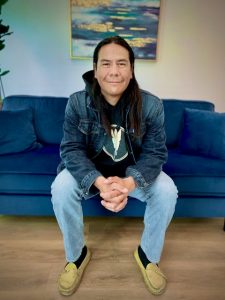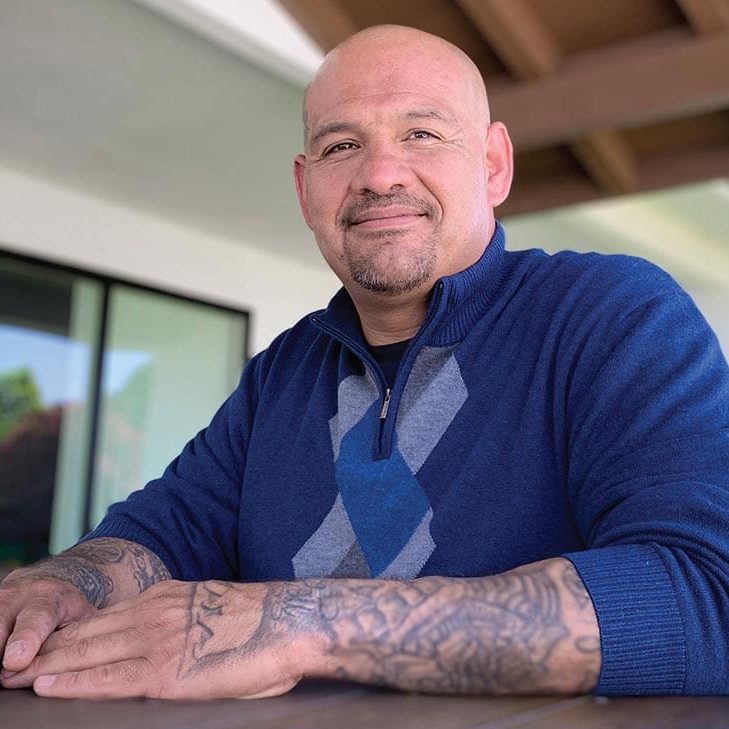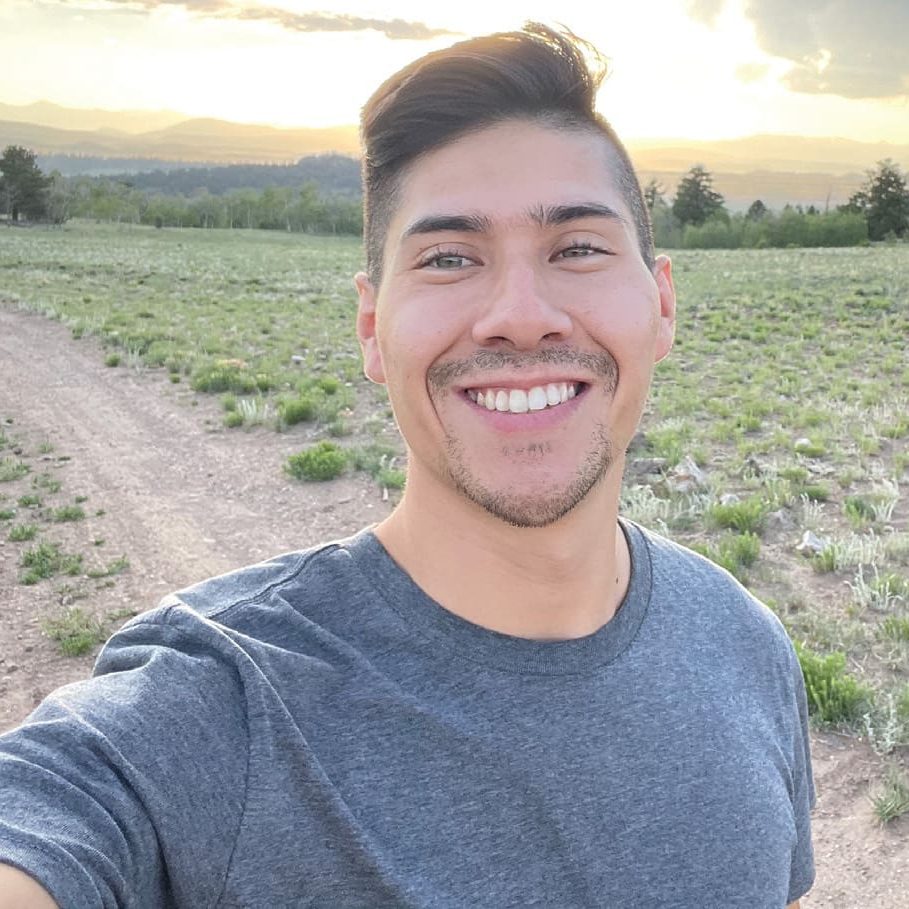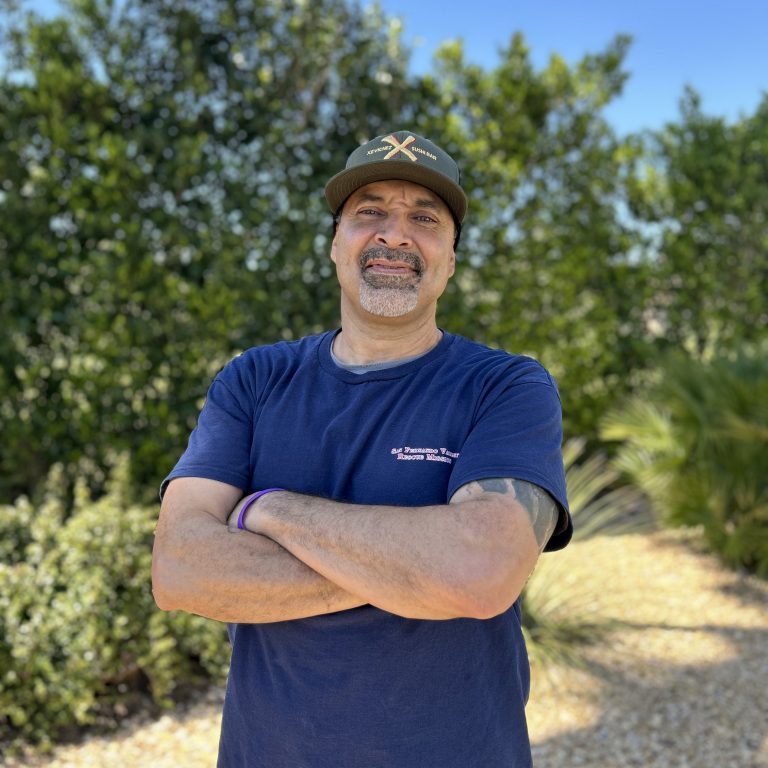Stories that Inspire.
Victories to Celebrate.
Louis knew God ‘always had a plan’ for him

Lone Eagle, Louis’ self-given Native American name, is a reflection of spending a lot of time alone during his life.
As a Native American boy growing up in the city, Louis had a lot to figure out—and he typically did it alone. “I was always by myself,” he said. “I was sitting around a campfire, trying to figure out a name for myself—it’s part of my culture. And I thought, ‘Man, I’m always alone. Then an eagle landed on a branch beside me. I’d never seen a bird that big before.”
So his name—Lone Eagle—was born. “In Native American culture, they watch you grow up and you’re given a name over a time,” Louis said. “I did it myself. I was a “city Indian,” and didn’t grow up on a reservation. I self-reflected a lot, I tried to understand myself, and I gave it to myself.
“There’s a lot of pain in that too, because I didn’t grow up in my culture. I felt left out. That’s where the ‘lone’ part comes from too.”
Louis grew up in Canada. “My mom raised me,” he said. “I had a good childhood compared to a lot of kids. But we had a lot of hardships. We lived in shelters, and then a tiny apartment for five years.”
Eventually they received assistance from Native American housing services and moved into a townhouse with a playground and a pool in the front, and forest in the back. “For five years, I played, and made a lot of friends, and everyone in the neighborhood knew me and loved me,” Louis said.
But when the housing authority found out Louis’ other siblings weren’t there—they were older and had moved on—they moved them out of the large townhouse and into an 11th floor apartment. “It was the ghetto of Ottawa,” he said. “I started getting beat up a lot—I didn’t know how to fight like these guys—they were tough. I called them ‘war children’—many were Somalians fleeing war. They were coming from cities that were being bombed. Some held guns. I went from being on a pedestal to being knocked way down. That really turned my life inside out.”
Louis fought a lot at school, and was passed “just so the teachers could get rid of me.” He started smoking marijuana at 13. “It was probably the worst thing I’ve ever done,” Louis said. “It really changed my life. It made me more lazy. I lost that experience of young adulthood. I was watching my friends go off to school and get jobs, and I was just waiting for them to get home.”
Throughout his 20s, Louis got into hard drugs, bar hopping, and sleeping around. “I don’t remember most of it,” he said. “But at 30, I finally woke up and thought, ‘What am I doing with my life?’ I was living in a rooming house, had just lost a job, and had broken up with a beautiful girl. I think God was intervening. He always had a plan for me.”
Louis met Meredith, who was his girlfriend for the next 12 years. “She gave me the foundation to get off the streets,” he said. “She provided me with a home, she helped me see a therapist, and we did the paperwork to get me a driver’s license and status card. She helped me go back to school—I got my GED and then went to college for horticulture.”
Louis said he’s always had God with him, but it was more about appreciating his surroundings. In 2019, he was saved. Shortly after, he came to Los Angeles for a girl, a Christian woman he thought he would have a life with. “That relationship was traumatizing,” he said. “When it didn’t work out, even though I was a Christian, drugs and alcohol came back into my life.”
Louis lost the job he loved at Green Thumb Nursery. “I started spiraling,” he said. “I started hanging around (homeless) people at the park—that’s where I was introduced to meth. I was running out of money and it was so cheap. The whole summer was a waste—sitting in the parking lot, drinking beer, doing meth.”
In October of last year, Louis overdosed. “I’d never experienced that. I couldn’t move. I couldn’t do anything. I just prayed to God.
“When I first got to L.A., I was in the Bible every day. When I started backsliding into drugs and alcohol, I stopped. So, I found a church and the assistant pastor loved me and took me under his wing. He could see I was using. I’d be clean for a couple weeks, and then go back—he saw the pattern.”
Earlier this year, Louis had a stroke. After that wake up call, he entered the program, which was referred by his pastor. “I don’t deserve anything I have today,” said Louis, now 45. “Coming here has changed my life. The community and the camaraderie … everyone loves and believes in Jesus, and I just love it. I want to be surrounded by Him.
“I want a Christian wife, a Christian life,” he said, adding that being a park ranger is his dream. “I’m not trying to envision too far ahead of me. I just want to be more wise, patient, kind, and loving. I want to get to know Christ more.”
Louis encouraged anyone considering the program to go for it. “They’ll bring Jesus into everything that you’re doing—he’s the way, the truth, the life. So long as you want to change, it will change your life.
“This is now my home. Make this your home. Every man here has been where you’re at.”
Be Inspired
Be Transformed
Stay connected with the good work the Mission is doing, and learn more about the people we help.



